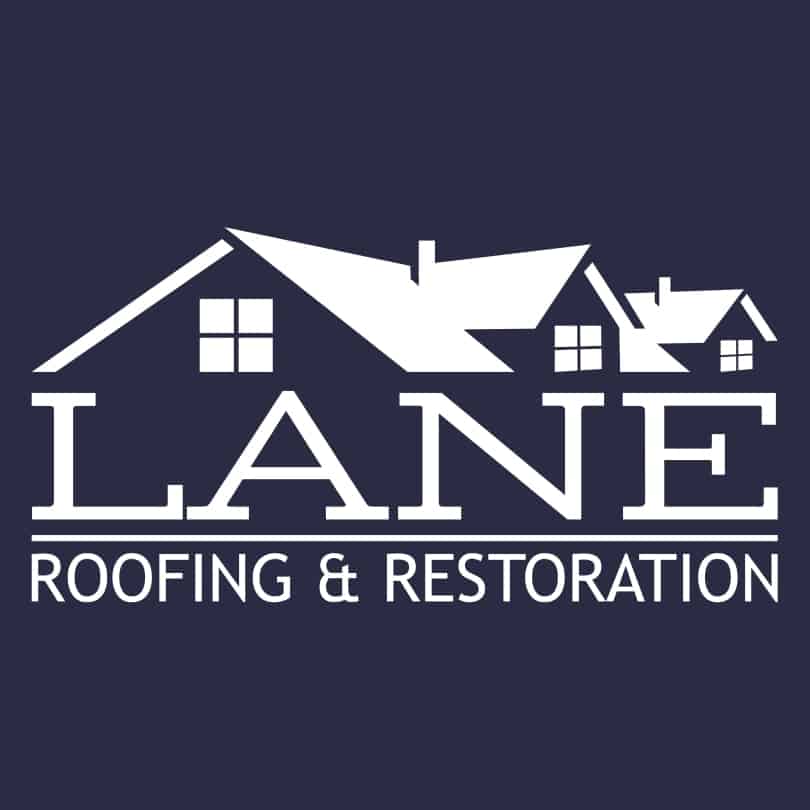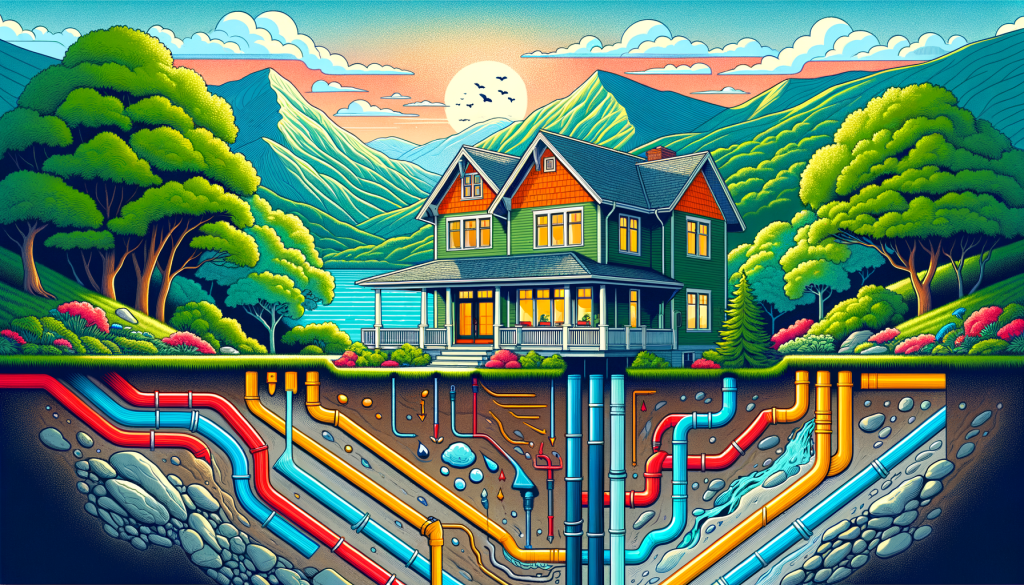When it comes to protecting your Asheville home, the relationship between your roof and foundation is more connected than you might realize. Here in Western North Carolina, where we experience everything from summer thunderstorms to winter snow, proper roof drainage isn’t just about preventing leaks—it’s about safeguarding your home’s entire structural integrity.
As roofing specialists serving Asheville and surrounding communities for years, we’ve seen firsthand how poor drainage can silently damage homes across our mountain region. The unique topography of Western North Carolina means many properties sit on slopes or in valleys where water management becomes even more critical. On rainy days, the Blue Ridge Mountains don’t just offer breathtaking misty views—they channel significant water toward our homes, making proper drainage not a luxury but a necessity for local homeowners.
Let’s explore why roof drainage matters so much to your foundation’s health and what you can do to protect your biggest investment.
How Roof Drainage Affects Your Foundation
Your roof is your home’s first line of defense against the elements, especially water. When rain or melting snow falls onto your roof, it needs somewhere to go. A properly designed drainage system channels this water away from your home’s foundation. When this system fails, the consequences can be severe and costly.
Water that isn’t properly directed away from your home doesn’t just disappear—it pools around your foundation. In our clay-rich Asheville soils, this creates a particularly troublesome situation. The soil expands when wet and contracts when dry, creating pressure changes against your foundation walls.
Over time, this cycle of expansion and contraction can lead to foundation cracks, settling, and structural damage. Even small amounts of water consistently hitting the same area can erode soil and create pathways for more serious water intrusion.
Many homeowners don’t realize there’s a problem until they notice basement leaks, cracked walls, stuck doors, or sloping floors—all potential signs of foundation issues that may have begun with improper roof drainage.
Common Roof Drainage Problems in Asheville Homes
The mountain climate of Asheville presents unique challenges for roof drainage systems. Here are the most common problems we encounter:
Clogged gutters: Our abundant trees mean gutters frequently fill with leaves, pine needles, and debris. When gutters can’t channel water properly, it spills over the sides—often right next to your foundation.
Inadequate downspouts: Many older Asheville homes have too few downspouts or downspouts that are too small to handle heavy mountain downpours. This can cause gutters to overflow during storms.
Improper downspout termination: Even with clean gutters and adequate downspouts, if the water isn’t directed far enough away from your home, it can still damage your foundation. This is especially problematic on the sloped lots common throughout Western North Carolina.
Sloped landscaping toward the house: The natural terrain around many mountain homes can direct water toward the foundation rather than away from it, compounding any roof drainage issues.
Ice dams in winter: Our freeze-thaw cycles create ice dams that prevent proper drainage, causing water to back up under shingles and eventually find its way into your home or down exterior walls.
Signs Your Roof Drainage Is Affecting Your Foundation
Being proactive about roof drainage means knowing what warning signs to look for. If you notice any of these issues, your roof drainage system may be compromising your foundation:
Wet basement or crawl space: Moisture in these areas often indicates water is pooling around your foundation.
Cracks in foundation walls: Particularly horizontal cracks can signal pressure from expanding soil due to excess moisture.
Settling or sinking areas around your foundation: Eroded soil from improper drainage can create depressions.
Mold or mildew: Especially on lower portions of exterior walls or in basements.
Peeling paint or rotting wood: On siding or trim near the foundation.
Muddy splashes on siding: A sign that water is hitting the ground hard next to your house rather than being carried away.
Water stains or efflorescence: White, powdery mineral deposits on foundation walls indicating water movement.
Here in Asheville, we often see these issues worsen after heavy rain events, which have become more frequent in recent years. The combination of our mountain terrain and increasingly intense storms makes proper drainage even more critical for local homeowners.
Effective Solutions for Proper Roof Drainage
Protecting your foundation starts with a comprehensive approach to roof drainage. Here are the most effective solutions we recommend to our Western North Carolina clients:
Regular gutter cleaning and maintenance: In our leaf-heavy environment, gutters should be cleaned at least twice a year—more often if your property has many trees. Consider gutter guards that work well with our local debris types.
Proper gutter sizing: Homes in our rainfall-heavy region often benefit from larger 6-inch gutters rather than standard 5-inch ones, especially on roofs with steep pitches that accelerate water flow.
Downspout extensions: Water should be directed at least 5-10 feet away from your foundation. In Asheville’s hilly terrain, this may require creative solutions to ensure water flows away from the house rather than back toward it.
French drains: Particularly effective for Asheville homes on slopes, these systems can capture water and redirect it away from your foundation.
Rain barrels: An eco-friendly option that captures roof runoff for garden use while reducing water near your foundation. Many Asheville homeowners appreciate this sustainable approach.
Proper grading: Ensuring the soil around your foundation slopes away from the house (at least 6 inches of fall over 10 feet) can significantly reduce water problems.
Underground drainage systems: For homes with serious drainage issues, buried drain pipes can carry water well away from the foundation to a suitable discharge point.
Each property in our varied Western North Carolina landscape has unique needs. What works for a home in flat West Asheville might be different from what’s needed for a steep-lot property in North Asheville or Weaverville. That’s why a personalized assessment is so valuable.
The Importance of Professional Assessment
While some drainage issues are obvious, others require experienced eyes to detect. A professional roofing contractor familiar with Asheville’s unique climate and building conditions can spot potential problems before they become serious.
At Lane Roofing and Restoration, we conduct thorough evaluations of entire roofing systems, including drainage components. We look at how water moves across your roof, through your gutters, down your downspouts, and around your property. This holistic approach allows us to identify issues that homeowners might miss.
For example, we recently helped a homeowner in the Kenilworth neighborhood whose basement had developed moisture problems. While other contractors focused only on the basement itself, our assessment revealed that improperly positioned downspouts were directing water toward a slight depression near their foundation wall. A relatively simple adjustment to their drainage system resolved an issue they’d been struggling with for months.
The investment in proper drainage is minimal compared to the cost of foundation repairs, which in Asheville can easily run into the tens of thousands of dollars.
Seasonal Considerations for Asheville Homeowners
Our distinct mountain seasons each present different drainage challenges:
Fall: Falling leaves and needles from our abundant trees can quickly clog gutters and downspouts. Pre-winter cleaning is essential.
Winter: Snow melt and ice dams create unique drainage issues. Heat tape on gutters can help prevent ice dams in problem areas.
Spring: Our frequent spring rains test every aspect of your drainage system when the ground is often already saturated from winter.
Summer: Sudden, intense thunderstorms can overwhelm inadequate systems. These heavy downpours often reveal drainage problems that go unnoticed during lighter rains.
Being proactive about maintenance before these seasonal challenges is the best approach. Many of our clients schedule regular maintenance visits to ensure their drainage systems remain effective year-round.
DIY Monitoring Tips for Homeowners
Between professional assessments, here are some ways Asheville homeowners can monitor their roof drainage systems:
Watch during rainfall: Observe how water flows from your roof during both light and heavy rains. Are there areas where water cascades over gutter edges or pools near your foundation?
Check your gutters: Look for sagging sections, which indicate they’re likely holding water rather than channeling it away.
Inspect downspouts: Ensure they’re securely attached and directing water away from your foundation.
Examine the ground: After a rain, look for erosion, pooling water, or muddy splashes on your foundation or siding.
Monitor your basement or crawlspace: Check regularly for signs of moisture, especially after heavy rains.
These simple observations can help you catch potential problems early, before they cause significant damage. Many Asheville homeowners tell us they now make these checks part of their regular home maintenance routine.
Why Local Expertise Matters
When it comes to roof drainage in Asheville, local knowledge makes a difference. Our region’s unique combination of mountain topography, clay soils, and variable climate creates drainage challenges not seen in other parts of the country.
A roofing contractor familiar with these local conditions can provide solutions that actually work for Western North Carolina properties. They’ll understand how our freeze-thaw cycles affect drainage systems, how our local tree species impact gutter maintenance, and how our mountain slopes influence water flow patterns.
As a local company deeply connected to the Asheville community, we’ve developed drainage solutions specifically designed for the challenges our neighbors face. Our team lives with these same conditions and understands what works—and what doesn’t—in our unique environment.
Protecting Your Investment
Your home is likely your largest investment, and protecting its foundation through proper roof drainage is one of the most cost-effective ways to preserve its value. The relatively small expense of maintaining and improving your drainage system can prevent far costlier foundation repairs down the road.
This is especially true in Asheville’s active real estate market, where home inspections regularly flag drainage and foundation issues. Addressing these problems proactively not only protects your home but can make a significant difference if you decide to sell.
Many homeowners we work with are surprised to learn that improving their drainage system often qualifies for homeowner’s insurance discounts, as it reduces the risk of water damage claims. It’s worth checking with your insurance provider about possible savings.
Remember that in our mountain community, water management isn’t just about protecting your property—it’s about being a good neighbor. Proper drainage ensures that your runoff doesn’t create problems for properties downhill from yours.
Your home should be a sanctuary, not a source of worry. By understanding the crucial link between roof drainage and foundation health, and taking proactive steps to ensure your drainage system is working properly, you can protect your Asheville home for years to come. When you’re ready to assess your roof’s drainage system or address existing issues, our team of local experts is here to help with solutions tailored to your specific property.
We’re proud to serve our Western North Carolina community with honest advice and quality workmanship that respects the unique character of our mountain homes. After all, protecting your home means protecting a piece of what makes Asheville special.

